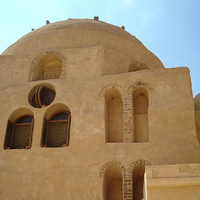CAIRO -- When the 9-year-old students at a private British school here skip down the hall for religion class, the children head in one of two directions. Muslim students shuffle into one classroom with their books on Islam, and Christian students to another with their texts on Jesus and the disciples. National policy in Egypt dictates that Muslim children study Islam and Christian students learn about Christianity. And while Christian students do acquire some knowledge of Islam through Quranic readings in standard Arabic classes, the exposure is limited.
Though it might seem anecdotal, the education policy is in fact revealing: Recent violence in Egypt between Muslims and Coptic Christians that killed at least 12 people and injured hundreds more is devastating and sad, but not particularly surprising.
Scores of government policies in Egypt promote sectarian divisions. Some such regulations are found on a small scale, such as government forms immediately asking respondents to list whether they are Muslim or Christian; no other religious options are usually offered, and atheism would be unconscionable. Whether an Egyptian is Muslim or Christian is also prominently displayed on every citizen's national identity card and on all Egyptian passports. But there are other, more-consequential stipulations, such as a law that requires a presidential decree for the construction of a new church. And the Egyptian constitution recognizes Islam alone as the country's official faith.

